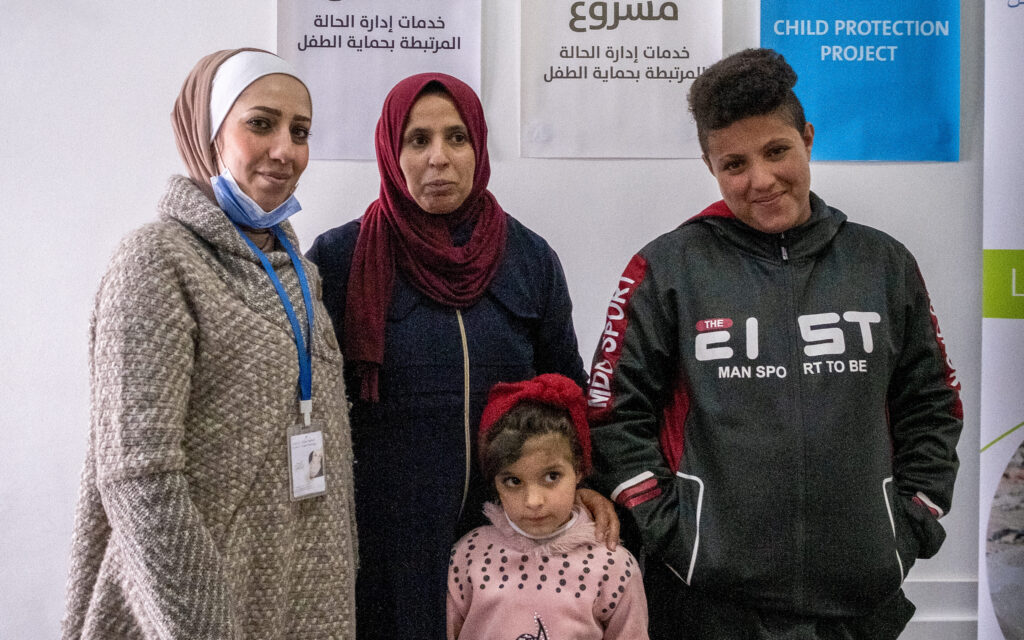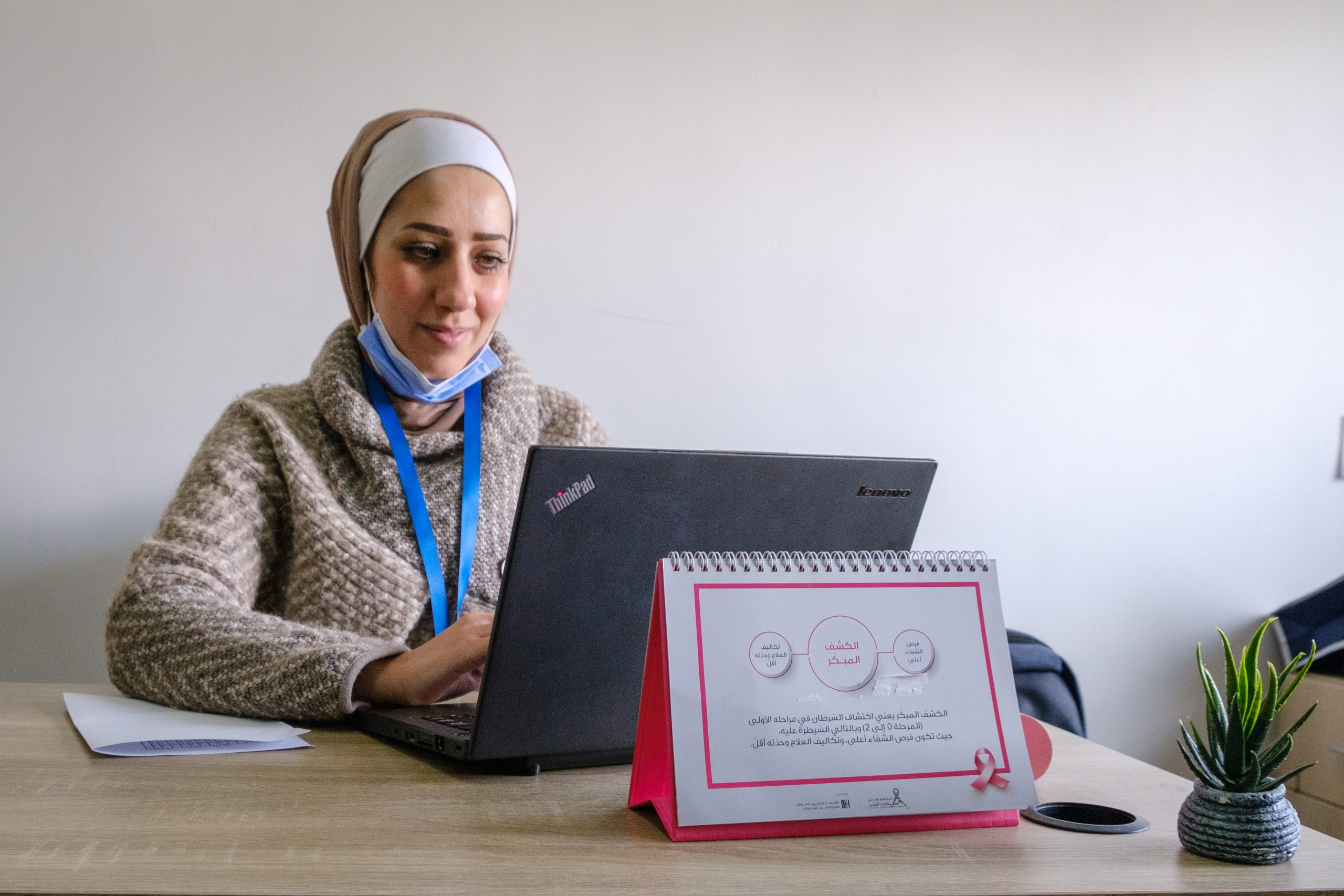UNICEF and NGO Rowad are working together to implement the ‘Work: No Child’s Business’ programme in Jordan to protect children who drop out of school, and support them return to school to complete their education. The programme also targets parents and caregivers, with raising their awareness, guiding them on how to provide a safe and healthy environment for their children and enabling them to grow and develop.

Alla works for Rowad as a case manager. The case managers talk with children that are working and the business owners to target them. After that, they categorize the child into an age group, from 7 till 17. They bring all the information to the office and the family is contacted. The case managers also visit the family at home and identify the needs of the family and child. A case and care plan for the children is made to refer the child to other projects or NGOs.
Through the case management, all aspects of the child and family are looked at: mental health issues, health issues, legal issues, education, etc. Some children are only six of seven years old when they start working. They mainly work at farms, in car repair or recycling shops and on vegetable markets.
“On the vegetable market we sometimes go in as a mystery shopper, just buying fruits. When we see a child, we start talking to them, trying to gain their trust,” Alla explains.
Families living on a farm often fully depend on the landowner. The case managers try to build trust and a good relationship with the landowner, and then try to negotiated that the child can go to the center to receive education. Not all landowners a very willing to let them go, so it can be a really long process.
“There are many parents, mainly refugees from Syria or Iraq, who never learnt how to read and write. We talk to them, let them try to understand the needs of good education.” Alla shares an example: “One day I met a deaf boy. He was selling artichokes along the road, to people in cars. The boy was deaf. In the past he was selling artichokes at a certain traffic light, but people from another family got angry, because they said that he was at their selling spot. They hit him on the head and that made him deaf. When I met him, I took him to the center. We raised the money for a hearing aid and we found a school for special education. I was so happy that we could help him.”

